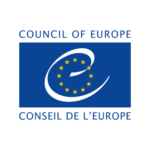Youth work against violent radicalisation: Theory, concepts and primary prevention in practice
Year of production: 2020
Image is illustrative. by Tyler Nix on Unsplash.
Youth radicalisation and the associated use of violence have become a growing issue of concern in Europe and its neighbouring regions. There has been a notable increase in hate speech, incidence of hate crimes and attacks on migrants and refugees, propaganda and violent xenophobia, as well as a rise in religious and political extremism and in terrorist attacks in Europe and its neighbouring regions. All of these emerging concerns have highlighted the need to work with young people in order to identify and address the root causes of extremism and prevent their radicalisation, as well as strengthen young people’s resilience, prevent marginalisation, promote equality, emphasise alternatives and reinforce the cohesion of communities in which they live.
In order to determine and illustrate the role of youth work in this regard, the SALTO EuroMed, SALTO EECA, SALTO SEE, the National Agencies of Erasmus+ Youth in Action of France, Germany, Italy, the Netherlands, Norway, Poland, the United Kingdom, and the partnership between the Council of Europe
and the European Commission in the field of youth have come together in 2017 to research and showcase positive ways and initiatives in which violent radicalisation of young people can be addressed and prevented, and examine how we can strengthen the role of different actors and communities in the countries that signed the European Cultural Convention and in the countries in the Southern Mediterranean region.
As a result, this study presents ways in which youth work prevents radicalisation leading to violence. It also identifies inspiring youth work practices, as well as the needs and challenges youth work faces.





